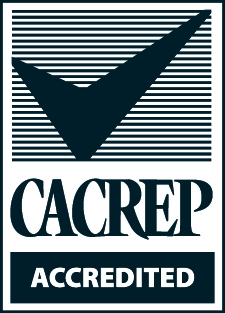Graduate School: Diversity and Inclusion
To provide hope and healing to everyone affected by addiction, counselors need to be culturally-sensitive and responsive. For this reason, and for so many more, diversity is a cornerstone of our curriculum.

Why Diversity Matters to Us
The Graduate School seeks to set the standard for clinical training. We prepare the future leaders in the field of addiction counseling, and that demands of us an unwavering commitment to diversity and a rich learning environment that adapts and applies to the real world.
Diversity benefits the higher learning experience by fostering stronger commitment to multiculturalism, increasing research and classroom emphasis on racial issues, increasing student involvement in multicultural courses and seminars, and exposing students to a wider variety of experiences and perspectives that encourage their professional development and readiness.
In short, we’re committed to making our education accessible to all, and to sharing the hope of recovery with everyone.
Diversity, equity and inclusion is foundational to how Hazelden Betty Ford Graduate School operates. Dr. Jorja Jamison explains why in this brief video.
Campus Climate Statement
The Hazelden Betty Ford Graduate School is dedicated to providing a warm, welcoming and safe environment for all graduate school students, faculty and staff.
The Graduate School celebrates diversity among our faculty and students. We value all voices and experiences regardless of age, gender identity, race, ethnicity, physical ability, international origin or learning style. Our learning environment thrives on diversity, and we embrace the conversations and learning opportunities that it affords us.
The Graduate School is a conduit through which individual perspectives and global interrelationships are enhanced by a learning and teaching environment that is aware of and sensitive to the diversity of its constituents. Diversity is constituted by the full participation of persons of different racial and ethnic orientation, of persons with disabilities and of people from other countries. Policies and procedures oblige its students, faculty, staff and alumni to foster the awareness and sensitivity necessary for acceptance and understanding of all people in society. The Graduate School strongly disavows acts of racism, sexism, bigotry, harassment and violence in any form and actively uses its human and other resources to provide opportunities for its constituents and the public to learn and appreciate the values of a diverse and multicultural world.
Land Acknowledgement Statement
The Hazelden Betty Ford Graduate School, with physical operations in Center City and St. Paul, MN, is located on land ceded in the 1837 Pine Tree Treaty by Ojibwe and Dakota nations. In addition, our school holds a national online presence, and we educate counselors across the United States and from around the world, on lands of diverse Indigenous peoples.
We acknowledge the painful history of settler colonialism, genocide and forced removal of Indigenous peoples from their territories that we now occupy. We acknowledge that this continues to impact Native Peoples to this day. Let us also recognize that the profession of counseling continues to benefit from the use and occupation of colonized Native Lands across the United States.
We honor the many diverse Indigenous people still connected to this land on which we gather across our nation and locations. We recognize our responsibilities to the Indigenous inhabitants of these lands and that we strive to address our settler colonial history so that it guides our healing and educational work in the present and the future.
We recognize that land acknowledgments are an empty exercise without a commitment to ongoing action. Our current action plan includes scholarships and funding for students from Indigenous communities, in addition to a special focus on clinical placements serving Indigenous people. As a school, we commit to evaluate this plan biannually, to hold ourselves accountable, and to seek and implement additional paths of healing and restitution.
We encourage each of you to reflect on personal ways to acknowledge the land on which you stand/study/live.
How We Encourage Diversity in the Classroom and Beyond
All students enrolled at the Hazelden Betty Ford Graduate School are encouraged to view diversity as a clinical training necessity, learning to adjust their approach based on various social, cultural, physical and psychological implications of recovery. Toward this end, all courses include diversity-related content. Students are also expected to integrate experience from coursework and clinical practice to improve their multicultural competencies.
The Role of Diversity in Our Curriculum
All students are required to complete a multiculturalism course. Students enrolled in on-campus programs [Link to in-person master’s, or create button at bottom of tile] complete CPC-604 Counseling Strategies: Multicultural Approaches. Learning outcomes include:
Analyzing the impact of individual differences and diversity on intervention and treatment planning
Assessing the benefits and limitations of typology
Understanding developmental models and stages, as impacted by unique cultural features, and integrating this knowledge into treatment planning
Developing treatment planning and counseling approaches based upon minority development models
Relating theoretical constructs and research in culture and ethnicity to clinical practice
Students enrolled in online programs [Link to online master’s, or create button at bottom of tile] complete IR-705 Culturally Responsive Co-Occurring Disorders Counseling. Learning outcomes include:
Analyzing the interplay of culture, mental health, and chemical dependency
Utilizing culturally appropriate, evidence-based approaches to counseling activities such as prevention, intervention, and assessment
Integrating theoretical constructs and empirical findings into a strengths-based model of service for culturally diverse individuals, families, and communities.
Appreciating the impact of racism, discrimination, sexism, privilege, political climate, and oppression on mental health and chemical dependency
Promoting the availability of and access to culturally sensitive mental health and chemical dependency services through public advocacy
The Role of Diversity in our Student Organizations
The Intercultural Student Counselors Association (ISCA) offers an opportunity for creating community, engagement, support, and sense of belonging within the Hazelden Betty Ford Graduate School. The group seeks to promote awareness of intercultural issues, celebrate inter-culturalism, provide resources and build a sense of community. ISCA’s goal is to prepare all student counselors to be of maximum service and effectiveness in a diverse world.
Important Partnerships with External Programs
Currently, we have numerous public service placements that reach individuals and families who come from a variety of diverse populations. Each semester, we work to expand the number of training opportunities, with a specific focus on connecting with external sites that serve a diverse clientele. We want to provide every opportunity to ensure our students are culturally sensitive and tolerant, have culturally-responsive frameworks and skills, and understand the nuances of treating clients from varying backgrounds.
Non-Discrimination Policies and Statements
Equal Opportunity/Nondiscrimination Policy Statement
Please note that this policy may change at a later date. Questions about these policies may be directed to the graduate school president, who serves as the Title IX coordinator, at 1-651-213-4863 or kdoyle@hazeldenbettyford.edu; to the student success coordinator who coordinates disability services at 1-651-213-4175 or GraduateSchool@HazeldenBettyFord.edu; or to The Office of Civil Rights at The U.S. Department of Education at www.ed.gov.
Employment
Hazelden Betty Ford Graduate School practices a policy of non-discrimination in recruiting, hiring and promoting of all its employees, both faculty and staff. It is committed to administering all personnel actions—demotion, transfer, use of facilities, treatment during employment, rates of pay or other forms of compensation, selection for training, layoff or termination—without regard to race, creed, religion, age, color, sex, disability, sexual orientation, gender identity, gender expression, national origin, ancestry, marital status, veterans' status, status with regard to public assistance, socioeconomic status, membership or activity in a local human rights commission, political belief or affiliation, or any other legally protected category, or physical, mental or medical disability unrelated to the ability to engage in activities involved with the job. Hazelden Betty Ford Graduate School actively supports an affirmative action program in order to provide equal employment and educational opportunity in all areas: academic, support, and instruction.
Educational Programs and Activities
The Hazelden Betty Ford Graduate School programs are open to qualified applicants able to meet entrance requirements. The programs do not discriminate against applicants on the basis of race, creed, religion, age, color, sex, disability, sexual orientation, gender identity, gender expression, national origin, ancestry, marital status, veterans’ status, status with regard to public assistance, socioeconomic status, membership or activity in a local human rights commission, political belief or affiliation, or any other legally protected category. Completing this application does not mean assurance of admission.





